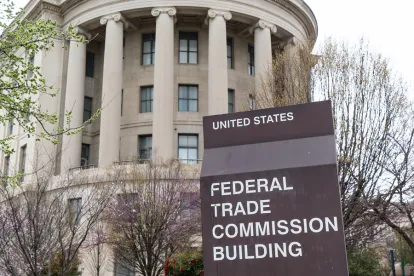The interview can be found here.
In that same article, the Journal also reported that the Federal Trade Commission “has in recent months issued subpoenas to a variety of businesses suspected of imposing unnecessary noncompete clauses on workers.” This appears to be the first instance of definitive FTC action against employers related to noncompetes.
The FTC’s subpoenas come as the Biden Administration has shown increasing interest in using the FTC Act to challenge noncompetes. In July 2021, President Biden issued an Executive Order directing the FTC to consider promulgating a rule “to curtail the unfair use of non-compete clause and other clauses or agreements that may unfairly limit worker mobility.” Four months later, in November 2021, the FTC released a draft strategic plan for FY 2022-2026, which noted a goal to “[s]tudy and investigate . . . non-compete and other potentially unfair contractual terms resulting from power asymmetries between workers and employers.”
Then, on May 11, when a third Democrat was appointed to the FTC, breaking what had been a 2-2 partisan divide at the commission, The New York Times reported that the FTC “could act on requests from progressive activist groups that want the agency to . . . forbid noncompete agreements.”
There remains some dispute over whether the FTC has the authority to regulate noncompetes. Khan has argued that section five of the FTC Act, which prohibits unfair or deceptive acts or practices in or affecting commerce, would permit a rule targeting noncompetes. By contrast, the Chamber of Commerce has argued that a rule prohibiting or limiting noncompetes under the FTC Act would be “extraordinary” and would “face strong legal challenges.” Separately, in July of last year, 60 lawyers and paralegals representing employers sent a 36-page letter to the FTC, taking no position on whether the FTC had such authority, but urging that any rule should “be judicious” and tailored “to the specific abuses” identified in practice, e.g., noncompetes for low-wage workers or noncompetes without advanced notice.
But at least for now, regulation of noncompetes remains largely in the hands of the states. Some, like Wisconsin, Missouri, and Texas, broadly allow noncompetes for no consideration beyond continued at-will employment. See, e.g., Runzheimer Int’l, Ltd. v. Friedlen, 862 N.W.2d 879 (Wis. 2015); Jumbosack Corp. v. Buyck, 407 S.W.3d 51, 57 (Mo. App. 2013); Marsh U.S., Inc. v. Cook, 354 S.W.3d 764, 775 (Tex. 2011). Others, like California, broadly prohibit many noncompetes as a matter of law. See Cal. Code, Bus. & Prof., § 16600. In recent months, a number of states, like Colorado, have taken more stringent approaches to noncompetes.
Going forward, employers with noncompetes need to pay careful attention to these federal developments, as well as further developments at the state level. On the state level, legislatures are increasingly targeting the use of noncompetes. Accordingly, employers should review their practices and ensure compliance with state law, but also engage in a broader analysis of their noncompetes, particularly if they involve lower-wage workers.




 />i
/>i

